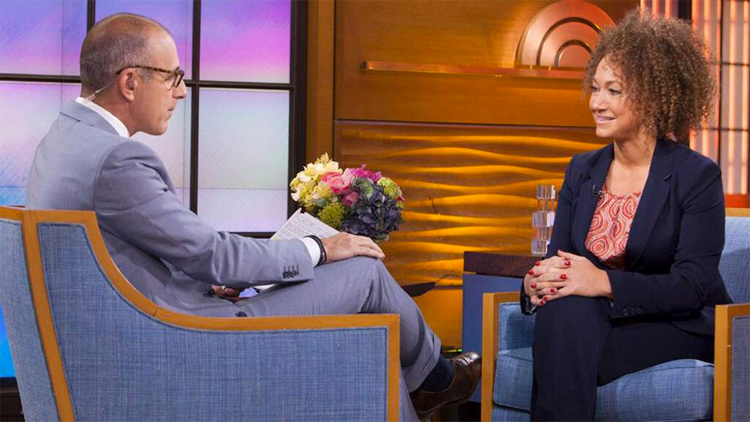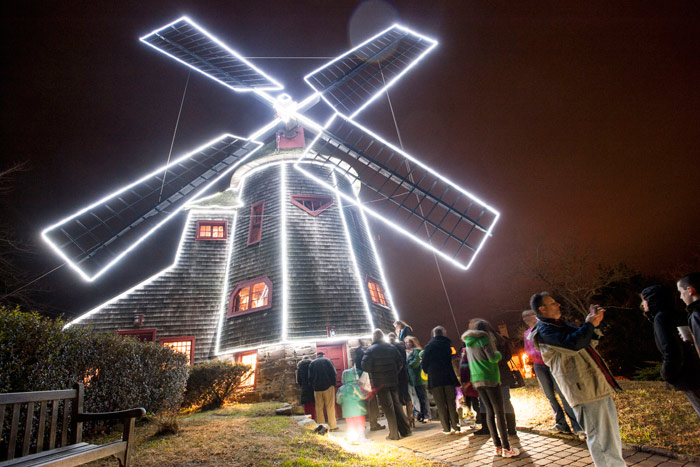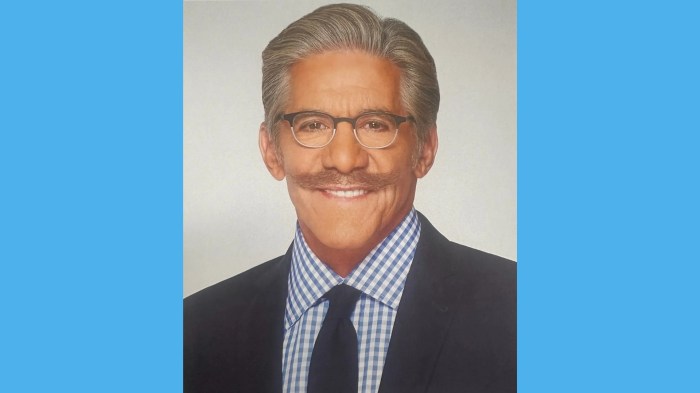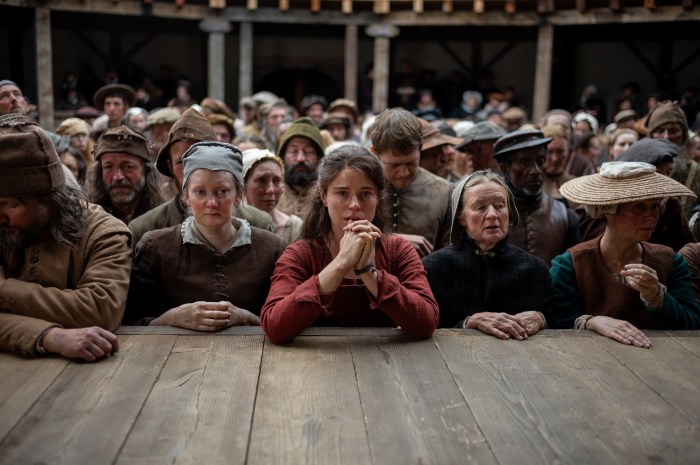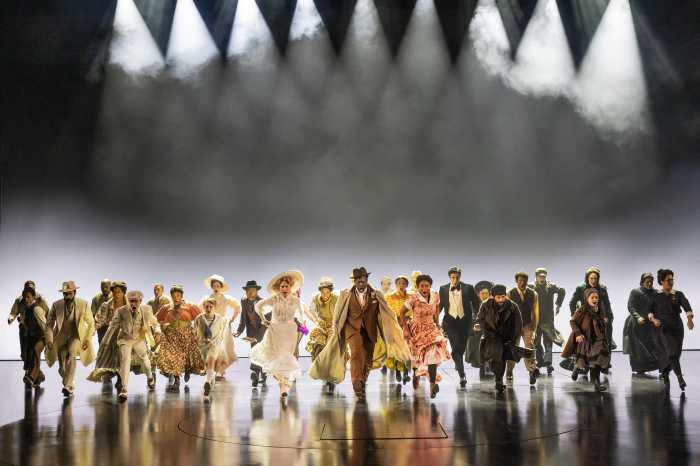Most of the students at my public school were African-Americans and so were my friends. I had sleepovers at Craig’s house (he was Jamaican). Or Rob’s (his family was from Montserrat). Or Napoleon’s, whose family was from the deep South.
As an only child whose extended family lived far away, my childhood was never some exotic adventure for me, some daring venture into black coolness. It was all I knew.
When I was a senior, my first child was born. I was only 18. My mother wasn’t happy, mainly because I was messing up my chances for higher education. Her mother, also from the South, wasn’t happy either, mainly because I was white.
It was unfair treatment, I thought. I certainly didn’t consider myself white, culturally speaking, but I did have to learn there were boundaries I couldn’t cross.
While I dabbled with my appearance—designs buzzed into my hair, my oversized clothing—I learned when proposing a fun Halloween costume that blackface was never acceptable.
Though I was one of the few white people who, in certain company, could get away with using the N-word as informal term of endearment, I decided it was wiser not to let it become part of my casual vocabulary.
Despite my sincerity, I also had to accept that many people saw my adoption of hip hop mannerisms as mockery, perhaps part of a long, historically uncomfortable practice of cultural appropriation.
Impregnating a black girl didn’t help.
Of course, teaching myself boundaries didn’t come easy. Having little outside influence, how could I not develop the same cultural characteristics as my darker-skinned brethren? We shared nearly all our waking moments together. I spent time at their houses. We stayed up late Friday and Saturday nights playing video games, listening to rap music on the radio—when rap music was only on the radio late Friday and Saturday nights.
My preferences—fashion, musical taste, language, television, movies—all were influenced by my peers.
For the most part, we looked past our pigmentation, and for me, it wasn’t just a phase. Although the relationship with my first son’s mother didn’t work out, he lived with me for a good portion of his life. I later married a black woman, and we had two children together, all while becoming a stepfather to her 100-percent black daughter.
Through her I was exposed to religion and eventually was baptized a born-again Christian at an all-black church in South Jamaica, Queens.
I expanded my interest in rap music: producing, writing and performing throughout the years. Later, in my spare time, I launched a hip hop magazine and I’ve become an outspoken advocate for hip hop culture.
Now, as many people who have grown up, were educated in, or work in multi-cultural environments, I haven’t been exclusively intertwined with any singular way of life, but black American culture is certainly a foundational aspect of who I am.
I’m not trying to pad my Black Resume´. I am trying to demonstrate how easily I could—as Rachel Dolezal, the disgraced former head of the Spokane, Washington, chapter of the NAACP, has stated—“identify” with being black, to the point where I’d say I have just as much right to call myself black as she does.
But I don’t. Because I think that is absurd.
Soul Man
“Mike is BLACK!” Coleman, one of my oldest friends, will state, loudly and emphatically, to anyone who would dare question my cultural affiliation.
Despite all my deep, sincere, empathic ties to African-American people, culture and lifestyle, I have to smile and shake my head “no” to anyone else who might be listening, even those who would—and do—agree with Coleman.
But I know what he means. And I know what Rachel Dolezal means when she says, as she did to Matt Lauer on The Today Show, “I identify as black.”
And I know how being white can be a stumbling block when dealing with minorities. In any interaction there are always hovering middlemen of privilege and mistrust. It’s for good reason, but for someone eager to be accepted as a full friend or ally, I know it can be frustrating.
In fact, Dolezal sued traditionally all-black Howard University in 2002, claiming she was being discriminated against (she was not “claiming” to be black at that time). Clearly, she felt she was fully qualified, but she was being overlooked because she was white.
Yet instead of using that experience to further understand and empathize with the similar experiences that black people have to deal with everywhere besides places like Howard, Dolezal seemingly got the notion that it might be better to cut out those middlemen.
After all, in an age when identity is starting to mean whatever one wants it to mean, and when race has been determined to be a social construct, why can’t someone with such a visceral connection to the black American lifestyle, simply consider themselves “black?”
*Snaps finger* POOF!
Perhaps the biggest problem with this idea of Dolezal being “transracial,” and the term itself–aside from her dubious story about depicting herself as a brown-skinned girl with crayons when she was 5, her claim that a black man was actually her father, and her assertions that she lives the black experience because she has black children—is that race isn’t really a thing.
The idea that race is a social construct is a concept that, in essence, suggests that no clear definition of “race” exists, that it is simply a fabricated lumping together of people based on some set of characteristics that are convenient for whatever reason. Race, often mistaken for ethnicity or ancestry, is in of itself not something concrete.
As such, there is no white race. There is no black race. No one can belong to one or the other.
So while technically someone can decide that they identify as another race, the only people who could find this acceptable would be people who recognize that there is no clear definition of race to begin with. So any such claim becomes moot.
This is why a term like “transracial” can’t possibly exist, and why any correlation to transgender doesn’t make sense.
I can understand the concept of transgender. If you are a man biologically but inside you feel you are a woman, you can make a claim to identify as a woman because each is clearly defined. You can’t biologically be a woman if you are biologically a man.
So, you can be a woman trapped inside the body of a man. Or vice-versa. Cool. I get it.
In the case of Dolezal, however, if race cannot be truly and clearly defined, there is nothing preventing someone from simply considering themselves part of another group or culture in the first place, without having to go through a presto-change-o makeover and make up a litany of presumably fabricated backstories.
How can someone feel trapped on the inside, being part of another group of people that isn’t, by definition, exclusionary in the first place?
Black Is Black
So it’s a strange paradox that Dolezal has put herself in. Perhaps, because we are collectively in the throes of a national discussion regarding identity, coupled with the recent high-profile emergence of GLBT issues thanks to Caitlin Jenner, there is a rush to equate the two.
The debate can be interesting but the idea that Dolezal, by adopting a particular lifestyle, advocating for a group of disadvantaged people and changing one’s appearance to match them, means that she can be considered one of them, ignores the real characteristics that historically most black Americans have in common.
The shared consciousness of the black experience in America cannot simply be adopted.
No matter how close I have been to black people, no matter how much I consider black American culture to be a part of my life, no matter how much I raise my mixed children to recognize, embrace and celebrate their “blackness,” nothing I could ever do, say or experience, could bring me close to knowing what it would feel like if it was my father telling me what it was like being raised in fear of the Ku Klux Klan, stories I heard from my ex-father-in-law.
No matter how many times I’ve been pulled over in poor, black neighborhoods—because I was obviously only there to buy drugs—it could never come close to knowing the constant fear that I or one of my family members might be killed by police—21 times more likely.
Acceptance by the hip hop community doesn’t mean that I know what it’s like to not get called for a job interview based on my last name, or to receive a more lengthy jail sentence than some of my white friends for the same crime, or to be turned down for a home loan, unlike my white friends with similar income.
Being called a “nigger lover” while walking with a black girlfriend in Atlanta is not the same as being called a nigger.
People of color in America deserve equal treatment. Until this happens, they need smart, dedicated, sincere people of color in positions that can advocate for the issues that need to be addressed.
Ideally, this can be done through local politics, through community organizations and through institutions like the NAACP.
But until equality is reality, people of color in America also need outside allies in these positions. Allies can do great good for these causes, as they have in the past.
It is not entirely clear why Dolezal felt she had to be one instead of the other.
While she is currently doing the media rounds, attempting to explain her behavior, I contend that Rachel Dolezal did herself, her family, her children, her causes, and the group of people that she says she feels so connected to, no favors with her elaborate roleplaying.
Instead, she ironically expressed an incredibly extreme example of privilege—the arrogance to think that she is worthy of owning the resilience, self-love, pride, ancestry, heritage and unique experience of another group of people, simply because she decided she could.
Equal, But Separate
A common refrain I’ve heard all my life is that “Mike wishes he was black.”
No. I am extremely proud of who I am and how I live.
But I am also similarly proud of the culture and larger communities I have become a part of.
I believe these things are not mutually exclusive. I can be both without having to hide behind makeup or made-up terms.
My perceived cultural “blackness” is derived from my participation in a varied set of experiences, lifestyle choices and preferences, perhaps shared more by people of color than otherwise, but not always exclusively so.
But it is absolutely vital that, in any culture, participants respect those who created and developed the customs and traditions they follow, and acknowledge how and why they came to be.
Completely, not just when it’s convenient. For originators as well as converts.
Black Americans have endured an incredibly difficult journey. But out of that journey, great contributions to humanity have emerged. I personally admire many of them, the communities that created them and many individuals from those communities. I have chosen to immerse myself among them, advocate for them and many, I view as family.
But I will never forget that the lifestyle is theirs. The culture is theirs. The stories are theirs. The history is theirs. The bloodshed was theirs.
My involvement is voluntary. Their acceptance of me is a privilege.
I could never pretend otherwise.




